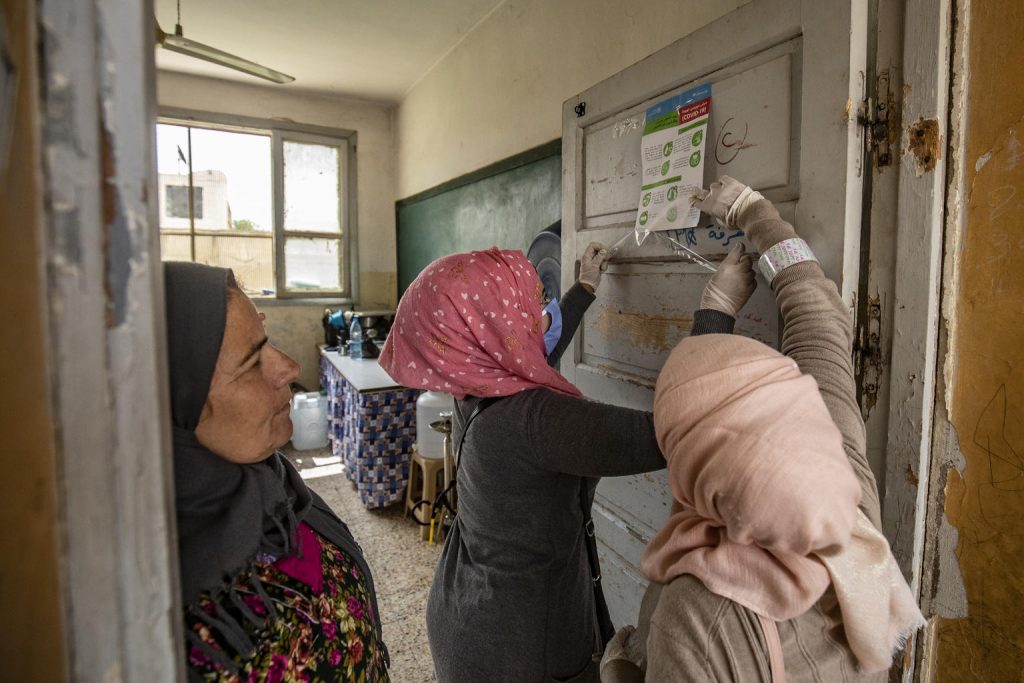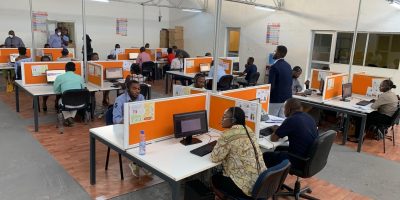Response actors will need to continue to communicate sensitively about infection control measures to prevent mass spread of the virus, believes Dr. Usama Hasan, Research Consultant at the Tony Blair Institute for Global Change and practising imam. He provides five practical tips on how best to set up collaborative partnerships with religious leaders during Ramadan.
Religious gatherings and practices during the month of Ramadan have the potential to spread COVID-19 amongst the population, and require careful risk assessment by national authorities and response actors. In several countries (Iran, Pakistan, France, and the USA) clusters of initial COVID-19 cases stemmed from large religious gatherings and to prevent “super-spreading events” governments are implementing a spectrum of infection prevention measures. Their efforts may include banning gatherings during the holy month; ensuring that appropriate IPC measures are in place at important religious sites, regulating entry and ensuring physical distance between people there, and exploring alternative ways of safe religious observance.
Previous disease outbreaks such as Ebola, MERS & SARS have shown that cancelling and adapting mass religious gatherings, however, is challenging but can be accepted when there is visible support of religious bodies, global health authorities and other Muslim governments. Response actors should recognize that religious leaders have an important task in strengthening mental and spiritual health, well-being and resilience and in ensuring that accurate information is shared. Religious leaders across the world are supporting the COVID-19 pandemic response efforts[1], and should be continue to be engaged in discussions about measures relating to Ramadan: they play a crucial role in understanding risks, in making decisions about appropriate practices and in communicating those decisions.
So, how can response partners best engage with religious leaders during Ramadan and the many celebrations and festivals of different religions to be commemorated over the next year or so, whilst the Covid-19 pandemic continues? One of the biggest of these celebrations is the Hajj festival in Saudi Arabia, due only two months after the end of Ramadan, when 2-3 million pilgrims usually converge on Mecca and Medina.
Build trust with religious leaders and integrate them into planning, decision making and implementation at every level of infectious disease response efforts.
Religious leaders can lend their reputation to support behaviour change and compliance with social distancing and other mitigating measures. Evidence from previous outbreaks has shown that religious leaders should be involved in National Task Force efforts, and be given the opportunity to provide leadership. During the most recent Ebola outbreak in DRC, for example, more than 70 religious leaders were publicly vaccinated to curb rumours around the vaccine, increasing uptake of inoculation.
A case in point is the otherwise-excellent WHO guidance on Ramadan that asks authorities to “provide alcohol-based hand-rub (of at least 70 per cent alcohol) at the entrance to and inside mosques”. Given that hundreds of millions of Muslims believe that alcohol is ritually impure (najas), this has the potential to undermine the WHO guidance. There is even the danger of social unrest, as there will be influential voices accusing the WHO of promoting physical impurity and uncleanliness inside mosques. WHO could refer to the Islamic authorities who have endorsed the use of alcohol-based hand-rubs in the COVID-19 situation as a case of dire necessity, due to the Qur’anic principle that necessity allows even what is usually prohibited.
Liaise with religious scholars and leaders to ensure that scripturally contextualized communications in support of public-health efforts are crafted and disseminated.
Religious leaders at national, regional and local levels can help advise on policy and public messaging in a way that will make this messaging more likely to succeed. Such communications should stress that measures are in line with religious principles, and emphasise that the collective obligation is vital. Examples from the Middle East and Africa show that such messaging can help reduce social pressure to engage in socio-religious practices that undermine suppression efforts. In Egypt, for example, the highest Islamic authority in the land, Al-Azhar, issued a religious ruling that all mosques in the country should be closed during the pandemic due to the primary Islamic obligation of saving lives. The Nigerian Supreme Council for Islamic Affairs published nine guidelines online, each supported by references from Islamic scriptures.
Counter misinformation and conspiracy theories by working closely with religious leaders.
A minority of religious leaders have promulgated religiously grounded misinformation, promoting practices that put their communities at risk. This may be because of poor theology or caused by an insufficient knowledge of medicine as well as acceptance of conspiracy theories. Some priests, imams and rabbis from as far apart as Brazil, Nigeria, Kenya, Pakistan, Israel, Iran, and some Arab states have declared that COVID-19 is a divine punishment upon non-believers and that people of their own faith are immune from the disease. These beliefs may be taken up by followers and could severely harm response efforts. Government and response workers should educate and encourage influential religious leaders to actively counter these narratives. They should also take the initiative to try to understand conspiracy theories and respond to them.
Support religious leaders to help provide alternatives to normal religious practices, including virtual services.
Spirituality plays a particularly important role during a crisis such as a public health emergency. It can protect social functioning, cohesion and give people a way to cope with adversity, and as such, any ‘blanket bans’ during COVID-19 poses its own risks. Alternatives to ‘normal’ religious practices could be designed (including virtual alternatives). Emphasis could be placed on maintaining key values such as reflection, prayer, charity for the less fortunate, caring and ensuring that people can connect despite physical distancing measures. Goodwill and donations (zakat and zakat al-fitr) to those suffering or to trusted organisations should also be promoted to release the negative impact of distancing policies on families, but national authorities should set guidelines and communication strategies on how to safely do this. For example, promoting the use of digital money transfer systems or providing individual food packages to families, would be a good way to go.
In short, response actors should continue to work collaboratively with religious leaders to curb the risk to COVID-19 spread during Ramadan amongst Muslim majority and minority communities across the world. Lessons learned from this can then be applied to the many celebrations of festivals across different religions that are due to be commemorated over the next year or so whilst the global COVID-19 pandemic continues. Including religious leaders in infectious disease outbreak measures can critically increase the uptake and effectiveness of these measures.
Related webinar
Religious Minorities and Covid-19: What Can Be Done?
With Dr Syra Madad of NYC, Rabbi Moshe Freedman & Usama Hasan
This blog was written by Dr Usama Hasan, research consultant at the Tony Blair Institute for Global Change and a practising imam.
[1] In Somaliland, for example, the National Task Force, the president and the Minister of Religious Affairs work closely together on emergency response to include religious authorities using Friday sermons. And, the Spiritual Leader of Orthodox Christians, Ecumenical Patriarch Bartholomew I, urged Christians to comply with government public-health instructions. He urged his followers to work together during the emergency: “What is at stake is not our faith, but our faithful.”





